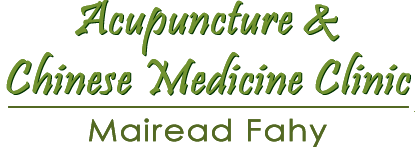Acupuncture is effective in helping with cancer treatment
The dreaded “C” word! Just the mention of “Cancer” is enough to strike fear into the heart of the strongest person. It is all pervasive and strikes almost every family at some time in their lives. The fine balance between life and death is never so apparent as when the illness which is “Cancer” rears its ugly head. Its a battle of will and courage, and sadly a lot of people never win the war.
There have been many advances in the early detection and treatment of cancer and while the standard medical care for cancer is effective, the treatments are aggressive and cause numerous unwanted side effects as well as a lowered immune system. Acupuncture has received much attention as an adjunctive therapy in cancer treatments for its use in pain relief, reducing side effects, accelerating recovery and improving quality of life.
What Acupuncture is used for during Cancer Treatment
Acupuncture provides a total approach to health care for people with cancer. It can be used to address many of the concerns that come up during and after chemotherapy, radiation, biological therapy and surgery.
According to the National Cancer Institute, acupuncture may cause physical responses in nerve cells, the pituitary gland, and parts of the brain. These responses can cause the body to release proteins, hormones, and brain chemicals that control a number of body functions. It is proposed that, by these actions, acupuncture affects blood pressure and body temperature, boosts immune system activity, and causes the body’s natural painkillers, such as endorphins, to be released.
The diseases or disorders for which acupuncture therapy has been tested in controlled clinical trials reported in recent literature can be classified into four categories as shown below.
1. Diseases, symptoms or conditions for which acupuncture has been proved—through controlled trials—to be an effective treatment:
- Adverse reactions to radiotherapy and/or chemotherapy
- Leukopenia
- Nausea and vomiting
Specifically the results of four of the major trials show the following statistics using Acupuncture in slightly different ways compared to a control group that received no acupuncture. The test group is the group that received acupuncture.
Acupuncture during radiotherapy
Acupuncture greatly lessened digestive and nervous system reactions (anorexia, nausea, vomiting, dizziness, and fatigue) due to radiotherapy and showed protection against damage to haematopoiesis.
Manual plus electric acupuncture
Gastrointestinal reactions were cured in significantly more of the acupuncture group:
• 93.2% of test group after 5.8 ± 2.7 days of treatment
• 65.2% of control group after 9.4 ± 3.4 days of treatment.
Magnetic plus electric acupoint stimulation
Acupoint stimulation therapy was comparable with intravenous metoclopramide for gastrointestinal reactions, and with dexamethasone and cysteine phenylacetate (leucogen) for leukopenia. The treatment was effective in:
• 87.5% of the test group
• 75.0% of the control group.
Body acupuncture (manual)
The treatment was effective in:
• 85.6% of the test group
• 61.1% of the control group.
- Dry Mouth, Night Sweats and Hot Flushes
- Stress, Anxiety and Fatigue
- Pain Management
- Increasing White Blood Cell Count
Other symptoms caused by cancer treatment
Clinical trials are studying the effects of acupuncture on cancer and symptoms caused by cancer treatment, including weight loss, cough, chest pain, fever, anxiety, depression, night sweats, hot flushes, dry mouth, speech problems, and fluid in the arms or legs. Studies have shown that, for many patients, treatment with acupuncture either relieves symptoms or keeps them from getting worse.
Boosting the Immune System
Human studies on the effect of acupuncture on the immune system of cancer patients showed that it improved immune system response, including increasing the number of white blood cells.
Pain Management
In clinical studies, acupuncture reduced the amount of pain in some cancer patients. In one study, most of the patients treated with acupuncture were able to stop taking drugs for pain relief or to take smaller doses.
Acupuncture is also very useful for support if you are undergoing chemotherapy, radiation, or hormonal therapy. Because chemotherapy and radiation therapy weaken the body’s immune system, a strict asepsis (sterile needle method) is rigidly adhered to when acupuncture treatment is given to cancer patients.
There is more evidence published within this report, however, since this report we have grown in our application, understanding and evidence that acupuncture does work. There are many differing theories, but the most interesting is quite simply to ensure that the body is stronger than the cancer, the tumour, the sarcoma. We already live with these cells in our bodies. It’s when they become too strong that the body becomes weakened. That is why acupuncture works alongside western treatments. This raises another question. Does acupuncture and Chinese medicine work alone? There is evidence to support that, but that is for another day.

